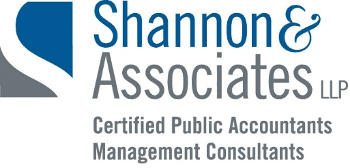
Private Equity Deals – Considerations of the Advantages of IRC Section 721
In the current M&A climate, it is very typical for private equity groups to form LLCs before acquiring target businesses. It’s also very common to package equity in the newly formed acquiring LLC as part of the purchase price of the Target Business. In cases where existing management will continue to be involved in running the business for a pre-determined period, this equity acts as an incentive to keep them engaged, growth-minded and allows for the deferral of a portion of the gain on sale to the target owners by way of Internal Revenue Code Section 1.721-1 (Section 721).
Section 721 states that no gain or loss shall be recognized either to the Partnership (LLC) or to any of its partners upon the contribution of property, whether an existing partnership or newly formed. Obviously, the most common application of this code section is when two or more individuals come together to form a partnership; however, it can be of great benefit as a component of structuring business acquisitions by private equity.
Consider the following example:
Four shareholders of a large medical group agree to sell the practice in a deal put together via private equity. The established purchase price is $50 Million. The deal is structured as an asset purchase and allocated as follows:
Inventory $1 Million
Equipment/Fixed Assets $10 Million
Intangibles/Goodwill $39 Million
The shareholders will be paid $35 Million in cash and allocated a membership interest in the new acquisition LLC of $15 Million. The Doctors agree to work in the practice for the next five years, and the existing management group will stay in place.
The shareholders would be immediately taxable on the cash portion received for the assets, and the treatment of gain (ordinary or long-term capital gains rates) would be based on the asset classification (ordinary for the inventory, a combination of ordinary and long-term capital gains for the equipment sale based on prior depreciation methods subject to recapture rules and long-term capital gain for the Goodwill portion of the sale). The $15 Million would be considered rollover equity, and the taxability of this portion of the proceeds would be deferred until they dispose of the equity.
In order to pass IRS scrutiny, some logistical rules must be adhered to. First, the rollover equity must be issued in the name of the target medical practice. It would be carried on the balance sheet as an asset (investment in the new LLC). If the equity were transferred directly to the shareholders, it would become taxable immediately as a distribution.
Second, in a Section 721 transaction, the holding period and tax treatment of a future liquidation of the equity obtained as part of the purchase price follows the holding period and character of the underlying assets sold initially or transferred into the acquiring LLC. In other words, even though the investment in the new LLC may be held longer than a year before it’s liquidated, the ordinary income items of the original transfer still retain their character, and in this case, a portion of the rollover equity would be allocated to the inventory and subject to ordinary income when sold.
Issuing equity as part of the purchase price when acquiring a business via a partnership/LLC can benefit both the acquiring entity and the target business when existing management will continue to be involved. Structuring the deal to include rollover equity so that management still has “skin in the game” allows for deferring some of the gain and the potential for even greater reward for all investors down the road.
If you have questions on Section 721 or other taxation surrounding mergers & acquisitions, we are here to help! Your M&A team at Shannon & Associates, LLP are experts in tax, accounting, diligence, valuation, and related pre and post-deal planning and execution. We look forward to hearing from you!
https://www.shannon-cpas.com/services/advisory-services/mergers-acquisitions/

Mark Hale, CPA, Partner
Tax Matters Expert

Jeanette Roatch, CPA, CGMA, Partner and Director, Accounting & Auditing
Accounting/Diligence/Q of E Expert

Jessica Norris, CPA, CFE, CVA, Partner
Valuation Matters Expert

0 Comments